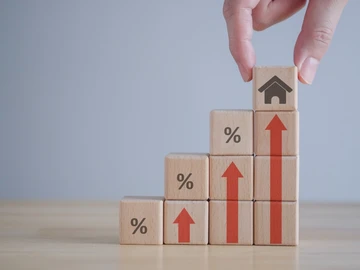Thinking of snagging a sweet crib in Zimbabwe? This article is for you. You need to know the dynamics of what is happening locally in the market. Zimbabwe's real estate market has been a topic of discussion in recent years, with many wondering if it's a buyer's market. However, despite the economic challenges, the Zimbabwean property market has shown remarkable resilience, and the current trends suggest that it's not a buyer's market. In this article, we will explore the reasons why.
Rising Property Prices
One of the key indicators of a buyer's market is declining or stagnant property prices. However, in Zimbabwe, property prices have been rising steadily over the past few years. According to a report by Property.co.zw property prices in Harare were up by 40%. This significant growth is a clear indication that the market is favouring sellers.
Demand Outstrips Supply
Another characteristic of a buyer's market is an oversupply of properties. However, in Zimbabwe, the demand for properties far exceeds the supply. The country's population is growing rapidly, and the urbanisation rate is increasing, leading to a high demand for housing. According to the Zimbabwe National Statistics Agency, the country's population is projected to reach 17.4 million by 2025, putting pressure on the housing market.
Limited Housing Stock
Zimbabwe's housing stock is limited, and the country faces a significant housing backlog. According to the Ministry of National Housing and Social Amenities, Zimbabwe has a housing backlog of over 1.2 million units. This shortage of housing stock means that buyers are competing for a limited number of properties, driving up prices and favouring sellers.
High Rental Yields
Rental yields in Zimbabwe are high, making it an attractive market for investors. According to a report by Africa Property News, Zimbabwe's rental yields average around 8-10% per annum, higher than many other African countries. This high demand for rental properties means that buyers are willing to pay a premium for properties, making it a seller's market.
Economic Growth
Despite economic challenges, Zimbabwe's economy is showing signs of growth. The country has implemented several economic reforms, and the IMF has predicted a register 3,2 percent growth in 2024.This economic growth is driving up property prices and making it a seller's market.
Statistics:
- Remarkable surge in house prices by 16.5% in the high-density area and an impressive 40% in Harare North. Of all property categories,houses had the biggest demand at 57.2% ,followed by land 24.9% ,flats 12.5% and commercial property at 5.3%( Property.co.zw )
- Population growth rate: 2.1% per annum (Zimbabwe National Statistics Agency)
- Housing backlog: 1.2 million units (Ministry of National Housing and Social Amenities)
- Rental yields: 8-10% per annum (Africa Property News)
While Zimbabwe's real estate market faces challenges, the current trends suggest that it's not a buyer's market. Rising property prices, demand outstripping supply, limited housing stock, high rental yields, and economic growth all point to a seller's market. Buyers should be prepared to compete for properties and pay a premium, while sellers can take advantage of the current market conditions to get a good price for their properties.
But Wait, There's More!
- Economic Uncertainty: Zimbabwe's economy is a bit unpredictable, making things like getting a mortgage a tad trickier than usual.
- Patience is a Virtue: With some savvy searching and a sprinkle of patience, you can definitely find a great deal on a Zimbabwean Market
- Get a Reliable Real Estate Agent: Have a trusted agent on your side to navigate the twists and turns.
- Research, Research, Research: Know the market, know the area, and know the property before making a move.
Happy House Hunting!
Remember, finding the perfect home in Zimbabwe might take some time and effort, but with the right mindset and a bit of luck, you can score an amazing deal!
 Continue with Facebook
Continue with Facebook
 Continue with Email
Continue with Email














